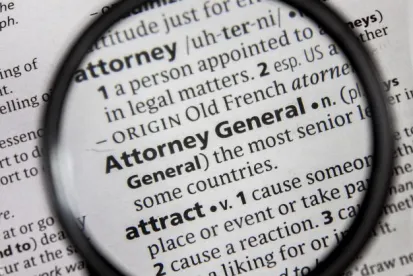Five years ago, the General Assembly amended the foreclosure statute to prohibit an attorney who serves as trustee or substitute trustee from representing the noteholder or the borrower during a foreclosure proceeding.
In the old days, lenders often could rely on counsel simultaneously to conduct the foreclosure and represent their interests. These days, a non-judicial foreclosure under the power-of-sale provision in a deed of trust requires two parties -- a substitute trustee and lender’s counsel.
If there was any doubt about the new law, a recent decision from the North Carolina Court of Appeals invalidated a foreclosure because the lender's counsel also acted as trustee. The Court of Appeals held that a trustee must be neutral and can't also serve as counsel for the lender.
In 2014, Mickey, Wayne, and Sally Simmons refinanced a mortgage with the Groces. Attorney Matthews closed the loan for the Groces. Two years later, the Simmonses fell behind on their payments, and Matthews sent them a demand letter as counsel for the Groces. When the Simmonses failed to reinstate their loan, Matthews commenced a foreclosure special proceeding, filing a notice of hearing and other foreclosure pleadings that he signed as "Trustee." (Matthews was the original trustee under the deeds of trust.) The Yadkin County Clerk of Court entered an order allowing a foreclosure sale. Matthews, as Trustee, held the foreclosure sale, where the Groces placed the highest bid. Matthews, as Trustee, then tendered a Trustee's Deed to the Groces.
One year later, the Simmonses moved the court to set aside the foreclosure sale. The Clerk denied the motion. The Simmonses appealed. The Court of Appeals held that the Clerk had abused her discretion and failed to follow the law, and directed the lower court to set aside the foreclosure.
The Court of Appeals held that Matthews committed errors of form and substance. As to form, he did not include the statutorily-required statement of neutrality in the notice of foreclosure hearing. The trustee is a fiduciary to both the lender and the borrower. He or she may not advocate for either side during the foreclosure hearing and must use diligence and fairness in conducting the sale. It's easy to understand why Matthews didn't include the statement – he couldn't make it because he wasn't neutral. He was also serving as counsel for the lender and had sent demand letters to the Simmonses.
As to substance, the Court of Appeals pointed to the law that took effect in 2017. It clearly states: “An attorney who serves as the trustee or substitute trustee shall not represent either the noteholders or the interests of the borrower while initiating a foreclosure proceeding.” It was indisputable that Matthews was doing double-duty as trustee and counsel for the noteholders.
This was an unforced error by Matthews and the Groces. It appears from the facts they had the right to foreclose. Perhaps they were nostalgic for the old ways when counsel routinely wore two hats during foreclosure. The dual role was efficient, cost-effective, and fine for many foreclosures. If the foreclosure was uncontested, or if the borrower attended hearings solely to seek a continuance (i.e., to provide time to refinance the debt), a lawyer could serve this dual role without violating his ethical obligations or his fiduciary duty.
But those days are over, and the Groces – almost three years after the foreclosure sale – now will need to start from scratch. If they sold the property since then, they will have a real mess on their hands. The takeaway for noteholders is to follow the law and not try to save money by having your counsel serve as trustee. Retain an independent substitute trustee and pay for their services.




 />i
/>i

